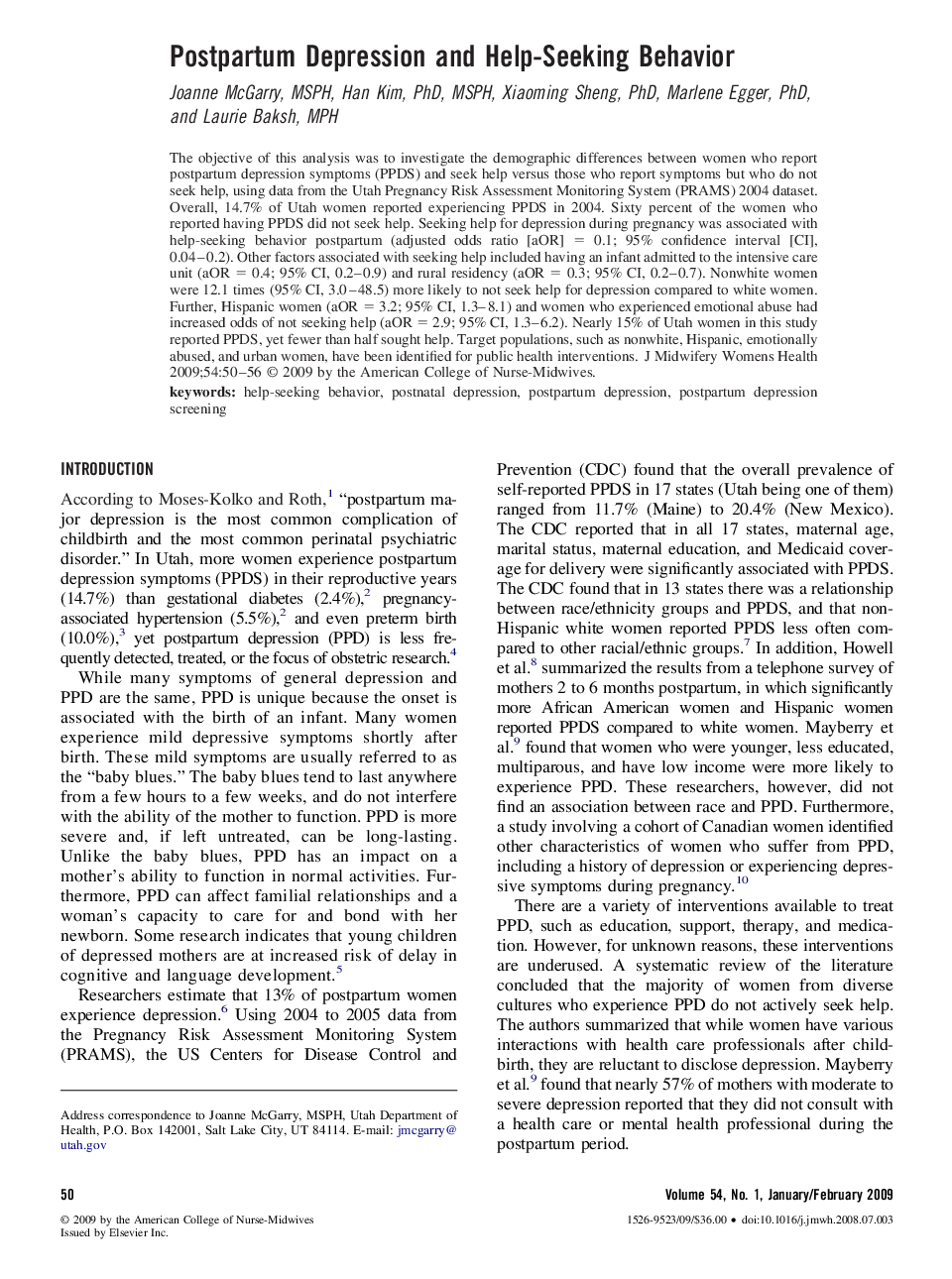| کد مقاله | کد نشریه | سال انتشار | مقاله انگلیسی | نسخه تمام متن |
|---|---|---|---|---|
| 2630269 | 1136690 | 2009 | 7 صفحه PDF | دانلود رایگان |
عنوان انگلیسی مقاله ISI
Postpartum Depression and Help-Seeking Behavior
دانلود مقاله + سفارش ترجمه
دانلود مقاله ISI انگلیسی
رایگان برای ایرانیان
کلمات کلیدی
موضوعات مرتبط
علوم پزشکی و سلامت
پرستاری و مشاغل بهداشتی
مامایی
پیش نمایش صفحه اول مقاله

چکیده انگلیسی
The objective of this analysis was to investigate the demographic differences between women who report postpartum depression symptoms (PPDS) and seek help versus those who report symptoms but who do not seek help, using data from the Utah Pregnancy Risk Assessment Monitoring System (PRAMS) 2004 dataset. Overall, 14.7% of Utah women reported experiencing PPDS in 2004. Sixty percent of the women who reported having PPDS did not seek help. Seeking help for depression during pregnancy was associated with help-seeking behavior postpartum (adjusted odds ratio [aOR] = 0.1; 95% confidence interval [CI], 0.04-0.2). Other factors associated with seeking help included having an infant admitted to the intensive care unit (aOR = 0.4; 95% CI, 0.2-0.9) and rural residency (aOR = 0.3; 95% CI, 0.2-0.7). Nonwhite women were 12.1 times (95% CI, 3.0-48.5) more likely to not seek help for depression compared to white women. Further, Hispanic women (aOR = 3.2; 95% CI, 1.3-8.1) and women who experienced emotional abuse had increased odds of not seeking help (aOR = 2.9; 95% CI, 1.3-6.2). Nearly 15% of Utah women in this study reported PPDS, yet fewer than half sought help. Target populations, such as nonwhite, Hispanic, emotionally abused, and urban women, have been identified for public health interventions.
ناشر
Database: Elsevier - ScienceDirect (ساینس دایرکت)
Journal: Journal of Midwifery & Women's Health - Volume 54, Issue 1, JanuaryâFebruary 2009, Pages 50-56
Journal: Journal of Midwifery & Women's Health - Volume 54, Issue 1, JanuaryâFebruary 2009, Pages 50-56
نویسندگان
Joanne MSPH, Han PhD, MSPH, Xiaoming PhD, Marlene PhD, Laurie MPH,